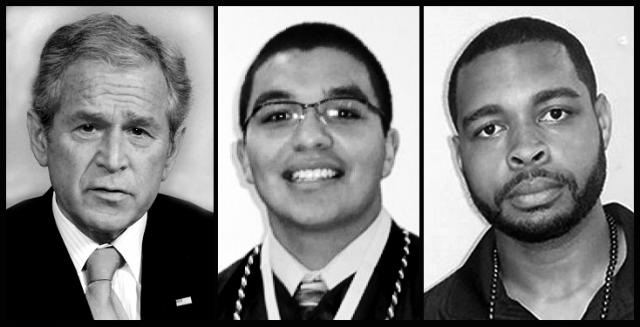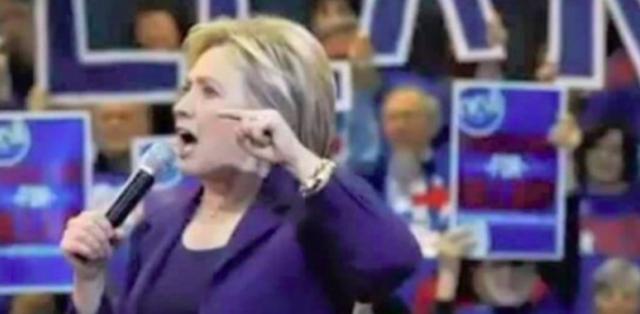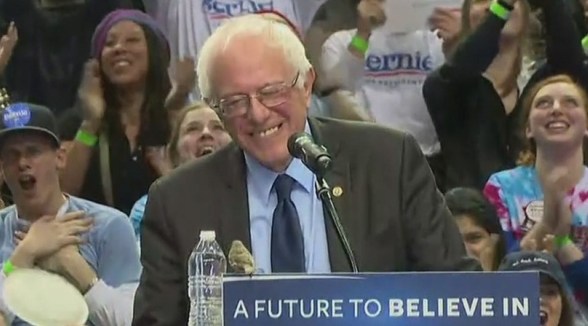Bernie Sanders threw in the towel today in his epic campaign to win the Democratic Party’s nomination for president, standing on a stage in Portsmouth, New Hampshire beside the woman he had spent the whole primary season denouncing as a tool of the corporate elite and especially of the Wall Street banking cabal, and saying he endorsed her as the party’s candidate for president of the United States.
The event marked the sad, if widely predicted, end to what for a brief time had electrified millions of young and working class voters: a major party candidate for president openly calling himself a socialist, proudly harking back to his days as a radical civil rights activist instead of trying to hide his past and his arrest record, and unabashedly condemning the greed, corruption and lust for power of the nation’s ruling elite.
 Bernie Sanders as a brave youthful activist and today, endorsing Hillary Clinton, a woman he had condemned as a corporate shill
Bernie Sanders as a brave youthful activist and today, endorsing Hillary Clinton, a woman he had condemned as a corporate shill
I confess to having been inspired by Sanders’ quixotic campaign myself, and while I’m disappointed that he has ended it in such a dismal and humiliating manner, I’m not sorry he ran. Thanks to Bernie Sanders, the word “socialism” is no longer a pejorative in American politics. It is a political philosophy to which millions of young people are now drawn. That is something that can and will be built upon. For at least two generations it was not possible to call one’s self a socialist and be taken seriously in the United States of Capitalism. Of course, Sanders didn’t achieve this breakthrough by himself. His campaign built directly upon the struggles of the Occupy Movement, which in 2011 gave us “We are the 99%!” and made it clear that it is the 1% of the nation’s wealthiest people who basically own and run the country.
Bernie Sanders took that movement’s legacy and ran with it, literally, taking the country by storm and winning 22 states’ primaries along the way – and he probably would have won and maybe did win more had elections and counting been fairer (a month after that state’s primary was held they were still counting ballots in California!).
The deck was clearly stacked against Sanders’ campaign by a Democratic National Committee leadership that was solidly committed to Clinton and used every trick in the book, from scheduling primary debates at inconvenient times for viewers, like during the Superbowl, to shutting down the Sanders campaign’s access to voter contact records for a time, by a media that never ceased to disparage Sanders, first with red-baiting, then with false stories implying ignorance or incompetence, and finally, in an orgy of pro-Clinton PR, publishing reports that Clinton had “clinched” the nomination while Californians and voters in six other states were still casting their ballots in the last primaries of the season. Throughout the campaign the major corporate news organizations all continued reporting that Clinton had over 500 “super delegates” in her delegate total, an almost unassailable amount for Sanders to overcome, though in fact those delegates were not bound to vote for Clinton at all, but were elected Democrats, lobbyists and wealthy funders who had simply stated their preference for Clinton. By doing this, the media made it appear that Sanders never had a chance from the get go, though he actually came amazingly close to Clinton in pledged delegates without ever taking any corporate payola to fund his campaign.








